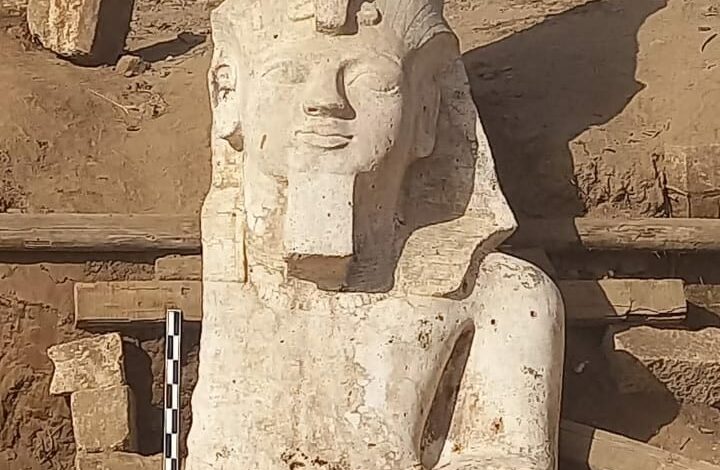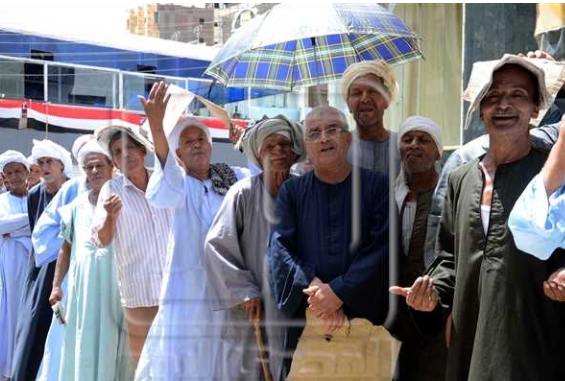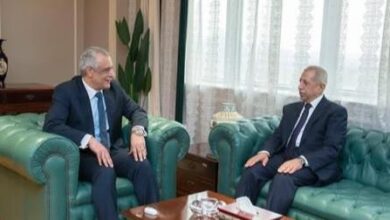
The joint Egyptian-American archaeological mission between the Supreme Council of Antiquities and the University of Colorado, operating in the el-Ashmunein area in Minya Governorate, Upper Egypt, uncovered the bust of a huge statue of King Ramses II.
The Secretary General of the Egyptian Supreme Council of Antiquities, Mostafa Waziri, said on Monday that studies conducted on the finding confirm it belongs to part of a statue discovered by the German archaeologist G. Roeder in 1930.
The mission began carrying out cleaning and strengthening work in preparation for studying the bust and preparing a visualization of what the statue would look like in its entirety, he explained.
The head of the Central Administration of Antiquities of Central Egypt, Adel Okasha, explained that the mission began excavations in the region during the past year in an attempt to uncover the religious center of the city of Ashmunein during the New Kingdom until the Roman era, which includes a number of temples – including one for King Ramses II.
The head of the mission from the Egyptian side, Bassem Jihad, stated that the discovered part is made of limestone and is about 3.80 meters high.
It depicts King Ramses II wearing a double crown and a headdress topped with a royal cobra.
Jihad continued that the upper part of the statue’s back column shows hieroglyphic writings of titles to glorify the king.
The size of the statue when its lower part is installed may total about seven meters, he indicated.




